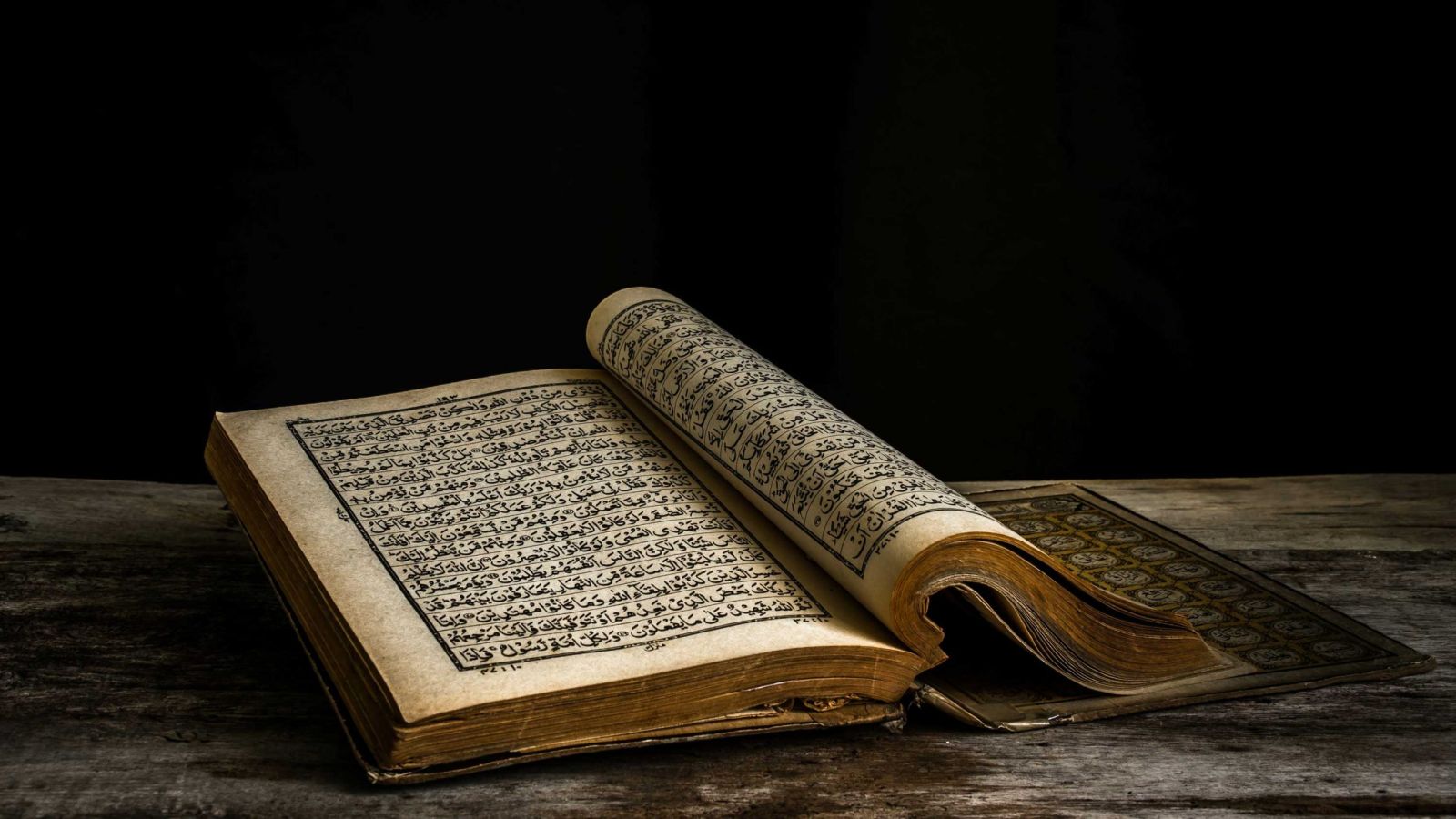The Explanation of the Meanings of the Names of the Prophet (ﷺ)


Muḥammad: is a passive participle, whosoever is praised, possessing many praiseworthy qualities then he is Muḥammad. The Prophet Muḥammad (ṣallallāhu ʿalayhi wa-sallam) is praised more than any other person, and this is why – and Allāh knows best – he was called by this name in the Torah, due to the many praiseworthy qualities which he, his religion, and his nation possess such that even Moses wished that he would be from them.
Know that the Prophet (ṣallallāhu ʿalayhi wa-sallam) has been called by many names and titles in the Qurʾān and Sunnah, each one of them descriibng a special quality of this exalted personality. And in understanding them and reflecting upon them, we can, by the permission of Allāh, increase in our love and following of the Messenger of Allāh (ṣallallāhu ʿalayhi wa-sallam). This discussion is taken from ‘Zād al-Maʿād’ (1/88-97) of ibn al-Qayyim, raḥimahullāh, summarised.
The names of the Prophet (ṣallallāhu ʿalayhi wa-sallam) are of two types:
Those names that are specific to him and none of the Messengers before him had these names, like Muḥammad, Aḥmad, al-Aaqib, al-Haashir, al-Muqaffī, Nabi al-Malhama.
Those names and qualities that are not specific to him, and were shared by the Messengers before him, but are found in him in the most complete and perfect forms. Like: Messenger of Allāh, His Prophet, His Servant, Prophet of Mercy etc.
What follows is an explanation of some of them.
Muḥammad: is a passive participle, whosoever is praised, possessing many praiseworthy qualities then he is muhammad. And Muḥammad (ṣallallāhu ʿalayhi wa-sallam) is praised more than any other person, and this is why – and Allāh knows best – he was called by this name in the Torah, due to the many praiseworthy qualities which he, his religion, and his nation possess such that even Moses wished that he would be from them.
Aḥmad: Derived, as is Muḥammad, from the noun hamd (praise). A group of scholars said that it is a passive participle, meaning: his praising of Allāh is more than any other person’s praise of him, and therefore he is the most deserving of being praised and the first. So in meaning Aḥmad is similar to Muḥammad except that the distinction is that he is Muḥammad due to his possessing many praiseworthy qualities, and he is Aḥmad due to his being praised in a more excellent way than the praise of any other. And this is the most complete meaning of this word, and the most extensive in commending him (ṣallallāhu ʿalayhi wa-sallam).
Also, these two names stem from his character, and the praiseworthy qualities specific to him, and it is because of these that he is called Muḥammad (ṣallallāhu ʿalayhi wa-sallam) and Aḥmad. And he is the one who is praised by the People of the Heaven, the People of the earth, the People of the world, and the People of the Hereafter.
Al-Mutawakkil: (The One who puts his trust in Allāh). In the Ṣaḥīḥ of Bukhārī from the ḥadīth of ʿAbdullāh ibn Umru who said, “I read the description of the Prophet (ṣallallāhu ʿalayhi wa-sallam) in the Torah: Muḥammad is Messenger of Allāh, My servant and Messenger, I have called him al-Mutawakkil. He is neither rude nor harsh and he does not shout in the markets, and he does not return an evil for an evil, rather he overlooks and forgives. And I will not make him die until I make firm the nation through him, causing them to say: there is none worthy of worship except Allāh.” 1
He (ṣallallāhu ʿalayhi wa-sallam) is the most deserving of this name, because the trust he put in Allāh to establish the religion was a trust unequalled by any other.
Al-Maahee: (the destroyer/effacer). This has been explained in the ḥadīth of Jubair ibn Mut`am: “al-Maahee: the one through whom Allāh destroys and effaces unbelief.” 2
Disbelief was not destroyed and removed by any single person as completely as was done by the Prophet (ṣallallāhu ʿalayhi wa-sallam). For indeed he was sent, and all of the inhabitants of the earth were in disbelief, except for some remnants of the People of the Book. Consisting of the worshippers of idols, the Jews who had the Anger of Allāh on them, the Christians who had been misguided, the atheist Saabi`een, the worshippers of the stars and the fire, and the philosophers who did not acknowledge the laws of the Prophets. And Allāh effaced them all through His Messenger until He established His religion and made it supreme over all others, and made it spread to the extent that the night and day spreads, and made his call as the rays of the sun in the various lands.
Al-Haashir: (the Gatherer). He is the one who gathered and united the people at his feet, and therefore it was as if he had been sent for this purpose.
Al-Aaqib: (The Last). He is the one who came at the end of the line of Prophets, and there is no prophet after him.
Al-Muqaffī: He is the one who was sent with the characteristics of the Messengers that had preceded him, and was their seal.
Nabi at-Tawba: (the Prophet of Repentance). It was by him that Allāh opened the door of repentance for the inhabitants of the earth [by them accepting his message], and Allāh forgave them with a forgiveness that was not given to the people before him. 3
And the Prophet (ṣallallāhu ʿalayhi wa-sallam) was the one who sought forgiveness from Allāh the most, to the extent that he would say, “My Lord forgive me and turn toward me, You are The Oft-Forgiving, The Oft-Returning” 4, 100 times in a single sitting. And he used to say, “O people repent to Allāh, your Lord, for indeed I repent to Allāh 100 times in a day”. 5
And likewise, the repentance of his (ṣallallāhu ʿalayhi wa-sallam) nation is more complete than the repentance of all the other nations, the quickest in being answered, and the easiest to be obtained. The repentance of the previous nations was of the most difficult matters, to the extent that the repentance for the worshippers of the cow amongst the People of Israa`eel was to kill those worshippers. 6 But as for this nation, then from the Kindness of Allāh to it is that he has made repentance dependant upon sorrow and abstaining (from the sin in question).
Nabi al-Malhama: (The Prophet of Slaughter). He was the one who was sent with Jihād to the enemies of Allāh, and no prophet before him did Jihād to the extent that the Messenger of Allāh (ṣallallāhu ʿalayhi wa-sallam) and his nation fought Jihād. And the like of the large wars that took place between him and the disbelievers were not seen before him. For his nation fought the disbelievers in lands to the ends of the earth.
Nabi ar-Rahma: (The Prophet of Mercy). He was the one whom Allāh sent as a Mercy for the universe. And Allāh was Merciful to all the people of the earth through him, both the believers and the disbelievers.
Al-Faatih: (the opener/conqueror). It was through him that Allāh opened the door of guidance after it had been closed, and opened closed eyes and deaf ears and sealed hearts. And through him, Allāh conquered the lands of the disbelievers, and opened the doors of Paradise, and opened through him the ways of acquiring beneficial knowledge and righteous actions. And He opened through him both the doors of this world and the hereafter.
Al-Amīn: (the Trustworthy). He is the most deserving out of all creations for this name. For he is the trustee of Allāh of His revelation and religion. And he is the trusted one in the Heaven and in the earth. And this is why he was called al-Amīn before his Prophethood.
Al-Bashīr: (the Bearer of glad tidings). He is the bearer of glad tidings for the one who obeys him of reward, and he is the Warner (an-Nadheer) of the one who disobeys him of punishment.
And Allāh called him his servant (Abd) in many places in His Book for example, ‘Blessed be He who revealed the Furqān to His servant’.7
It is established that he (ṣallallāhu ʿalayhi wa-sallam) said, “I am the Master (sayyid) of the children of Ādam [on the Day of Judgement] and I am not being arrogant.”8
And Allāh called him an Illuminating Lamp (Siraaj Muneer). And all praise is due to Allāh, and peace and blessings be upon His Messenger.
Endnotes:
[1] Related by Bukhārī in chapter dealing with the tafsīr of Sūrah Fath.[2]The full ḥadīth is, “I am Muḥammad, and I am Aḥmad, and I am al-Maahee through whom Allāh effaces disbelief, and I am al-Haashir through who the people are gathered at my feet, and al-Aaqib after whom there is no Prophet.” Related by Bukhārī in the chapter dealing with the tafsīr of Sūrah al-Ṣaff
[3] For example, a person who enters Islām shall have all his sins forgiven provided he does not persist in them while he is a Muslim.
[4] Related by al-Tirmidhī in the chapter of duʿāʾ (no.3430) and it is ṣaḥīḥ.
[5] Related by Muslim in the chapter of Dhikr and Duʿāʾ.
[6] See Qurʾān (2:54)
[7] Qurʾān (25:1)
[8] Related by al-Tirmidhī in the chapter ‘Excellence of the Prophet’ (no.3618) and it is ṣaḥīḥ.

















